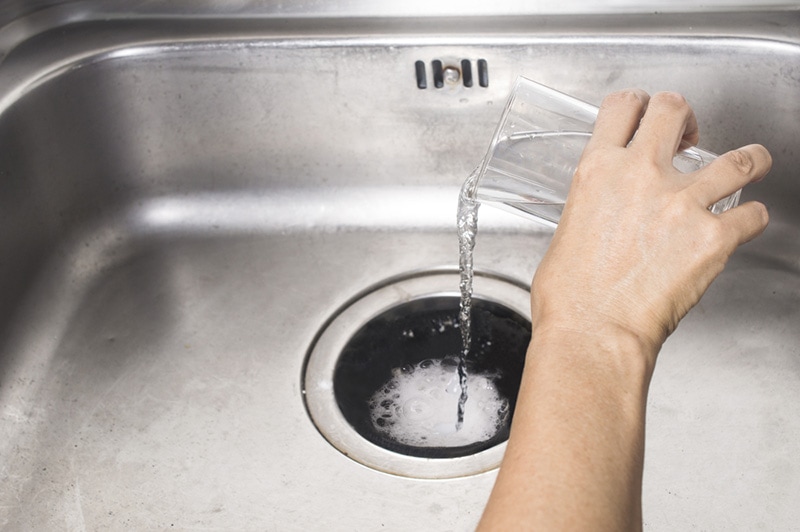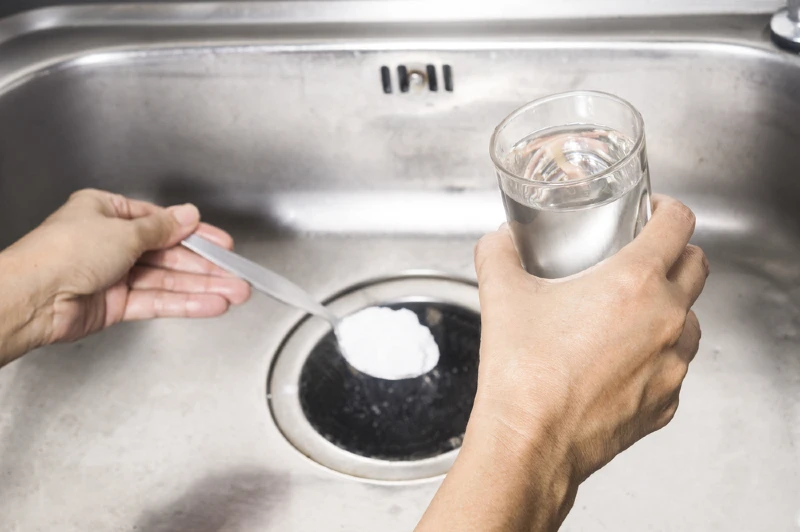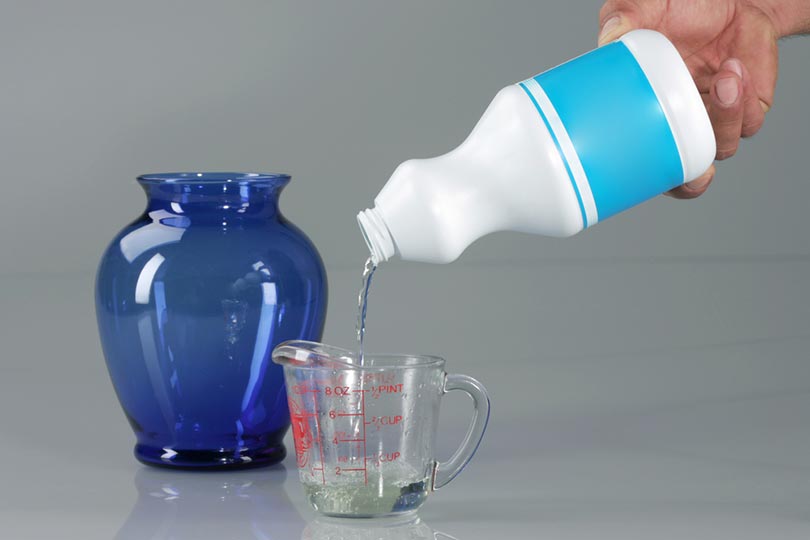Can You Pour Vinegar Down the Drain? Everything You Need to Know
-
Codee Chessher
- Last updated:

There are tons of homemade drain-cleaning remedies out there, but it’s hard to sort the good ones from the chaff. Some chemicals are extremely toxic or caustic, and therefore unsuitable for your drain. Alternatively, you shouldn’t even dispose of some chemicals by pouring them down the drain. You’ll hear about vinegar a lot in DIY drain cleaner recipes, but is that safe to pour down the drain?
Yes, it’s perfectly safe to pour vinegar down the drain. In fact, it’s one of the safest DIY drain cleaners to try when you discover a clogged drain. Drano and other caustic drain cleaners are usually overkill for minor clogs, but vinegar is just acidic enough to eat through many common clogs. That said, it’s best at eating through minor drain grime and not hardcore shower hairballs.
Where vinegar really shines is in preventative drain cleaning and keeping your drains from being clogged in the first place. Because it’s a very diluted acid, vinegar cleans more gently than other drain cleaners. Abrasive, caustic cleaners may actually damage your pipes if there’s not a serious clog, especially if your pipes are already old or corroded.
How to Use Vinegar to Clear Your Drain

You can just pour vinegar down the drain, but that’s not the most effective way to use it. First, you’ll need to bail out any standing water in the drain or sink. Boil a pot of water and pour that down the drain. Immediately follow up with a cup (or more) of white or apple cider vinegar and wait up to 15 minutes.
Once more, boil some water and pour it down the drain to flush the vinegar out and hopefully rinse away your clogs. If you hate the odor of vinegar, you can sprinkle some essential oils in the drain afterward to mask it.
The other method is to use vinegar with baking soda—yes, like the foaming volcanoes we all made in school. The foamy chemical reaction caused by these two ingredients is a more effective cleaner than vinegar alone, capable of pushing through tough clogs.
This combo is best used as a preventative cleaner for slow-flowing drains, as it doesn’t have the sheer caustic power of conventional chemical drain cleaners. Mix a cup of baking soda with a cup of vinegar, wait for it to foam, then immediately pour it down your drain. You can let this mix sit in the drain overnight if you wish, or flush it after a few minutes with boiling hot water.
When Not to Pour Vinegar Down the Drain
Although useful for minor clogs and maintenance drain cleaning, vinegar shouldn’t be used in certain circumstances. This is mainly a concern with other common cleaners, which vinegar can mix with to trigger dangerous chemical reactions. Let’s check out what not to mix vinegar with inside your drains.
- Bleach: vinegar and bleach react violently to produce deadly chlorine gas
- Hydrogen peroxide: creates corrosive peracetic acid when mixed with vinegar
- Ammonia: acidic vinegar and alkaline ammonia essentially cancel out each other’s effectiveness, making them nearly useless when mixed together
- Lye: like ammonia, lye is alkaline and isn’t useful for cleaning with vinegar
What Other Chemicals Are Safe to Pour Down the Drain?

Whether you’re cleaning the drain or just disposing of unwanted chemicals, it’s crucial that you know what’s safe to pour down your drains. Let’s first check out what you can pour down the drain, then move on to the stuff you can’t.
- Ammonia: mix with hot water at a 1:1 ratio and pour down drains to clear stubborn clogs
- Bleach: bleach isn’t very good for your pipes, but it shouldn’t hurt to pour it down your drain
- Salt: technically a chemical, salt can be used alone or with vinegar to help break down oil, grease, and other emulsified fats
- Alcohol: from tequila to rubbing alcohol, nearly any type of alcohol is safe to pour down drains in moderate quantities
- Hydrogen peroxide: this first aid kit staple is not only drain-safe but helps break down organic waste in drains and disinfect pipes
What Chemicals Shouldn’t Go Down the Drain?
Some stuff is downright horrible for your drains and pipes, and you should avoid pouring those chemicals down the drain at all costs. In some cases, it can exacerbate clogs, and in severe cases, it can damage or break your pipes. Pay close attention to what you shouldn’t pour down the drain.
- Paint thinner/nail polish remover: made of acetone, these can damage pipes if poured down the drain
- Paint: although tempting, you can’t dispose of paint by pouring it down the drain without harming your pipes and causing serious clogs
- Antifreeze: containing toxic chemicals that can contaminate water supplies, antifreeze should never be poured down the drain
- Oil, grease, and fat: most people know this already, but cooking oil or fats can easily solidify and clog drains
Final Thoughts
Vinegar is perfectly safe for drains and pipes and even makes a good mild cleaner. Use it alone, with water, or mixed with baking soda to achieve different effects. Also, take care to avoid mixing it with other products that can produce deadly chemical reactions, like bleach.
Featured Image Credit: batjaket, Shutterstock
Contents

